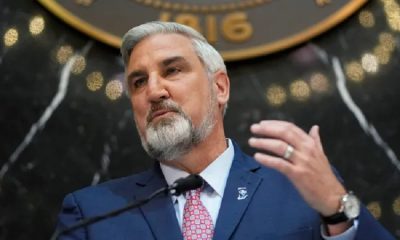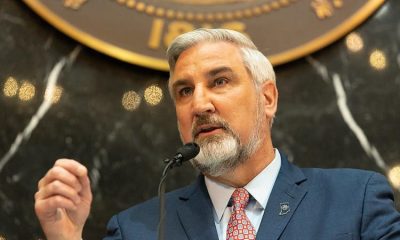Local News
Advocates for mental health in Indiana demand new sources of financing to expand services even more

Indianapolis, Indiana – Advocates for mental health say the $100 million in the new, two-year state budget for improved services is “a step in the right direction,” but they are urging lawmakers to approve longer-term funding sources in the future.
Senate Enrolled Act 1 aims to speed up access to necessary medical care for patients. It instructs the use of state resources to enhance the state’s response to crises involving mental health and broaden the network of clinics providing treatment.
“Right now workforce is scarce across our state,” said Zoe Frantz of the Indiana Council of Community Mental Health Centers.
A variety of mental health services are offered via the state’s network of accredited community behavioral health centers, which receive funding from the new state statute. According to Frantz, the additional cash will enable clinics throughout the state to increase their program offerings and hire more staff.
“They do care coordination and coordinating care from school to jails, hospitals,” she said.
Frantz said the financing for mental health passed this session is beginning in the right direction but won’t be sufficient to satisfy the needs in all 92 counties in Indiana.
The Indiana Behavioral Health Commission requested approximately $130 million in state assistance last year. $50 million is allotted annually under the new budget.
“I’m really most concerned about trying to build a platform of sustainable funding,” said State Sen. Michael Crider (R-Greenfield), who led efforts to get the mental health legislation passed.
Crider stated that he wants to eventually see lawmakers approve fees to raise additional money. This may take the shape of a $1 extra on phone bills or a hike in the price on cigarettes, two proposals that were discussed this year but not adopted.
“The cell phone fee makes a lot of sense because that’s one of the methods that the federal government gave us with the 988 legislation,” he said.
According to Frantz, that amount of more financing will be required in order for services to continue to grow after the next two years.
“It will not be enough to give the full state that full infrastructure build of crisis response and certified community behavioral health clinics, but that’s why we’re going to come back and advocate for that surcharge,” she said.
The new spending plan is implemented on July 1.
Separately, lawmakers allocated $10 million to increase the availability of mental health care for criminal offenders.
-

 Local News2 weeks ago
Local News2 weeks agoHolcomb is expected to travel to Brazil and Mexico for economic development
-

 Local News2 weeks ago
Local News2 weeks agoIn the United States, Indiana is considered to be one of the least “green” states
-

 Local News2 weeks ago
Local News2 weeks agoFreight railroads have requested that the courts strike down a new regulation mandating two-person crews on trains
-

 Local News2 weeks ago
Local News2 weeks agoCommunities throughout Indiana will get another $500 million in READI awards
-

 Local News2 weeks ago
Local News2 weeks agoAccording to the complaint, I Heart Mac & Cheese broke the Indiana Franchise Act
-

 Local News2 weeks ago
Local News2 weeks agoFunding shortfall forces FCC to cut internet subsidies
-

 Local News1 week ago
Local News1 week ago3 Indiana school districts asking voters for funding in May primary election
-

 Local News1 week ago
Local News1 week agoHendricks Co. Sheriff’s deputy dies after being electrocuted at crash scene






Leave a Reply